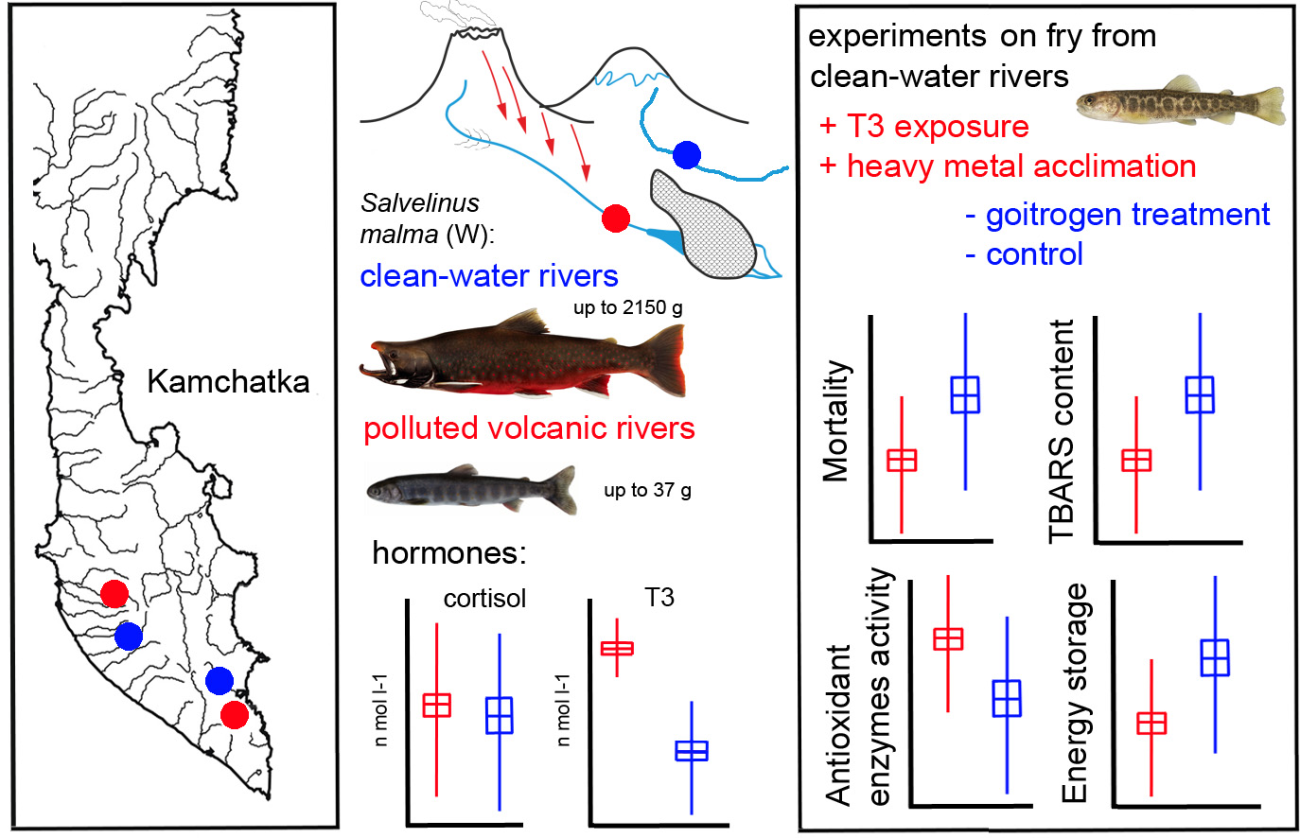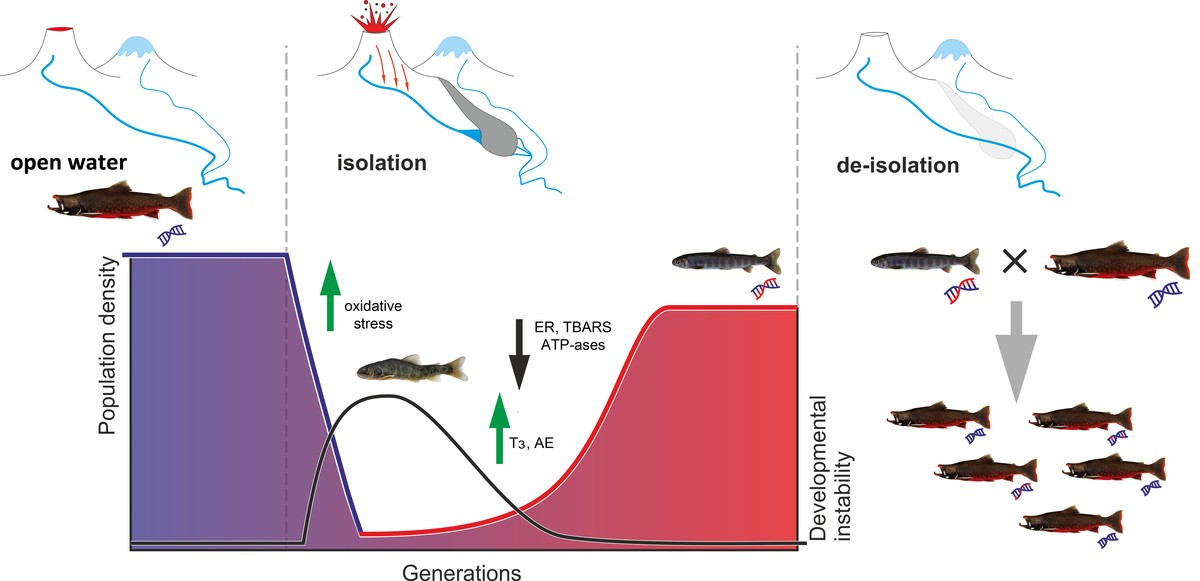
Streams draining the slopes of active volcanoes are often characterized by a number of unfavorable environmental factors for the habitat of aquatic organisms. In Kamchatka, many watercourses that serve as spawning grounds for the salmon Dolly Varden (Salvelinus malma) are contaminated with solutions of heavy metals. Excessive levels of copper, zinc, and lead in water are toxic to fish and cause multiple dysfunctions. Specialists from the Institute of Ecology and Evolution of the Russian Academy of Sciences studied populations of Dolly Varden permanently inhabiting streams of volcanic territories and discovered characteristic adaptive changes in physiology that make it possible to ensure the sustainable existence of populations in an extremely unfavorable environment.
The new article presents the results of field studies and experimental cultivation of Dolly Varden, shedding light on the physiological basis of adaptation to water pollution by heavy metals. It has been shown that fish from “volcanic” streams differ from the inhabitants of clean rivers in their hyperthyroid status, which accompanies an increased rate of catabolism, increased activity of antioxidant enzymes and reduced ionic conductivity of tissues. Counteracting physiological stress requires energy; therefore, Dolly Varden from volcanic streams is characterized by reduced reserves of lipids and glycogen in somatic tissues.
Experimental data show that hyperfunction of the thyroid gland increases the resistance of the fish body to water pollution with heavy metals. Also, adaptive hyperthyroidism determines the evolution of the phenotype in Dolly Varden populations. Under conditions of chemical pollution, populations begin to experience paedomorphosis, a reduction in the duration of the life cycle, and miniaturization of the body. The similarity of physiological and morphological changes in populations inhabiting volcanic streams for different numbers of generations suggests the universality of the mechanism of “evolutionary rescue” of fish in the event of exposure to unfavorable living conditions.

The results of the study were published in the Journal of Evolutionary Biology.
Esin E.V., Shulgina E.V., Shkil F.N. 2023. Rapid hyperthyroidism-induced adaptation of salmonid fish in response to environmental pollution. Journal of Evolutionary Biology. Vol.DOI: 10.1111/JEB.14220
Related materials:
